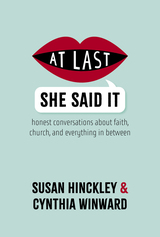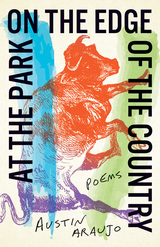6 start with O start with O
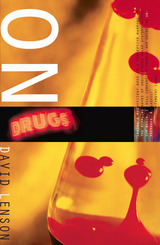
A critical exploration of the user’s perspective on drug consciousness-now in paperback!
Engaging, articulate, and brilliantly argued, On Drugs is destined to become a revolutionary classic that redefines what it means to be “high.” Calling for the acceptance of a “diversity of consciousness,” Lenson delivers a searing critique of the War on Drugs as an effort based, like all attempts to eradicate “getting high,” on an incomplete understanding of human nature.
In lucid prose, Lenson ventures outside the conventional genres of drug writing and offers a new look at the drug debate from a lost, and often forbidden, point of view: the user’s. Walking a fine line between the antidrug hysteria of the 1980s and an uncritical advocacy of drug use, he describes in provocative detail the experiences and dynamics of drugs of pleasure and desire-from nicotine to marijuana, alcohol to LSD, and caffeine to cocaine.From lotus-eaters to hippies to crackheads, history has shown the state’s inability to legislate the bloodstreams of its citizens. After considering several specific issues associated with drug use-including sex, violence, and money-On Drugs asks what drugs really do and challenges society’s accepted notions of sobriety and addiction. Lenson concludes with his vision of the end of the War on Drugs by questioning the sense in condemning millions of Americans to lives of concealment and deceit.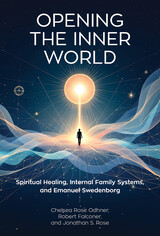
At its core, this work presents a refreshing synthesis of modern psychological theory and the enduring relevance of Swedenborg’s 18th-century spiritual philosophy. The authors skillfully demonstrate how IFS, a cutting-edge therapeutic model developed by Richard Schwartz, aligns with and is enriched by Swedenborg's spiritual teachings. This unexpected pairing yields fresh insights into the nature of the human mind and spirit, providing readers with a comprehensive approach to understanding and nurturing their inner world.
Key Themes and Insights:
1. The Multiplicity of the Human Mind: Explore the concept that we are composed of various "parts" or aspects, each with its own perspective and purpose. This understanding challenges the notion of a monolithic self, opening up new avenues for self-discovery and healing.
2. Interconnectedness of Psychological and Spiritual Realities: Discover how our inner psychological landscape is intricately linked with spiritual dimensions. This holistic view offers a more complete picture of human experience and potential.
3. Inherent Goodness of All Parts: Learn to appreciate and work with all aspects of yourself, recognizing that even challenging parts serve a protective function. This compassionate approach fosters self-acceptance and inner harmony.
4. Transformative Power of Self-Exploration: Engage in practical techniques for inner dialogue and self-reflection, drawing from both IFS methodology and Swedenborg's spiritual practices.
5. Universal Framework for Spirituality in Psychotherapy: For mental health professionals, this book offers a non-denominational approach to incorporating spiritual dimensions into therapeutic practice, enhancing the depth and efficacy of treatment.
6. Accessible Application of Swedenborg's Teachings: For those familiar with Swedenborg's work, discover how his spiritual insights can be practically applied to personal growth and healing through the user-friendly lens of IFS.
Who Will Benefit:
- Mental Health Professionals: Gain valuable insights into integrating spirituality into your practice, enhancing your therapeutic toolbox with a unique, holistic approach.
- Spiritual Seekers: Deepen your understanding of the connection between psychological processes and spiritual growth, finding new pathways to inner peace and self-realization.
- Academics and Students: Explore a novel intersection of psychology and spirituality, opening up new areas for research and contemplation.
- Individuals Seeking Personal Growth: Whether struggling with inner conflicts or simply looking to enhance your self-understanding, this book offers practical wisdom and techniques for personal transformation.
Why This Book Matters:
In a world where mental health and spiritual well-being are increasingly recognized as interconnected, Opening the Inner World: Spiritual Healing, Internal Family Systems, and Emanuel Swedenborg offers a timely and invaluable contribution. It bridges the often-perceived gap between psychology and spirituality, providing a comprehensive framework for understanding the human experience in all its complexity.
The authors bring a wealth of knowledge and experience to this work. Chelsea Odhner, with her background in both IFS and Swedenborg's teachings, provides a unique bridging perspective. Robert Falconer contributes deep insights from his extensive work with IFS, porosity of mind, and trauma healing. Jonathan S. Rose, with his scholarly expertise in Swedenborg's writings, ensures a nuanced and accurate representation of Swedenborg's spiritual philosophy.
This book is not just a theoretical exploration; it's a practical guide to inner transformation. Readers will find themselves equipped with new tools for self-exploration, healing, and spiritual growth. The conversational style and real-world examples make complex concepts accessible, inviting readers to engage deeply with the material and apply it to their own lives.
Published by the Swedenborg Foundation, a respected non-profit organization with a long history of promoting spiritual inquiry and growth, this book represents a significant contribution to the fields of psychology and spirituality. It continues the foundation's tradition of offering thoughtful, life-changing content that promotes holistic well-being and spiritual understanding.
Opening the Inner World: Spiritual Healing, Internal Family Systems, and Emanuel Swedenborg is more than just a book; it's an invitation to a deeper understanding of yourself and your place in the spiritual and psychological landscape of existence. Whether you're new to these concepts or a seasoned explorer of the mind and spirit, this work offers fresh perspectives and practical wisdom for your journey of self-discovery and healing.
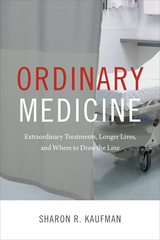
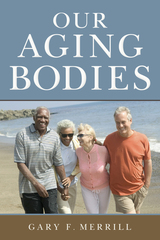
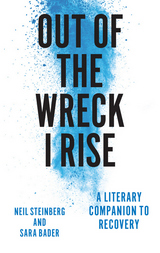
Addiction is easy to fall into and hard to escape. It destroys the lives of individuals, and has a devastating cost to society. The National Institute of Health estimates seventeen million adults in the United States are alcoholics or have a serious problem with alcohol. At the same time, the country is seeing entire communities brought to their knees because of opioid additions. These scourges affect not only those who drink or use drugs but also their families and friends, who witness the horror of addiction. With Out of the Wreck I Rise, Neil Steinberg and Sara Bader have created a resource like no other—one that harnesses the power of literature, poetry, and creativity to illuminate what alcoholism and addiction are all about, while forging change, deepening understanding, and even saving lives.
Structured to follow the arduous steps to sobriety, the book marshals the wisdom of centuries and explores essential topics, including the importance of time, navigating family and friends, relapse, and what Raymond Carver calls “gravy,” the reward that is recovery. Each chapter begins with advice and commentary followed by a wealth of quotes to inspire and heal. The result is a mosaic of observations and encouragement that draws on writers and artists spanning thousands of years—from Seneca to David Foster Wallace, William Shakespeare to Patti Smith. The ruminations of notorious drinkers like John Cheever, Charles Bukowski, and Ernest Hemingway shed light on the difficult process of becoming sober and remind the reader that while the literary alcoholic is often romanticized, recovery is the true path of the hero.
Along with traditional routes to recovery—Alcoholics Anonymous, out-patient therapy, and intensive rehabilitation programs—this literary companion offers valuable support and inspiration to anyone seeking to fight their addiction or to a struggling loved one.
Featuring Charles Bukowski, John Cheever, Dante, Ricky Gervais, Ernest Hemingway, Billie Holiday, Anne Lamott, John Lennon, Haruki Murakami, Anaïs Nin, Mary Oliver, Samuel Pepys, Rainer Maria Rilke, J. K. Rowling, Patti Smith, Kurt Vonnegut, and many more.

From her perch in rural Kalona, Iowa, Swander discovers new strength and self-reliance along with a community of hardworking and hospitable neighbors. Raising goats and poultry, participating in barn raisings and auctions, protecting her garden from a plague of grasshoppers, creating a living crèche at Christmastime, all the while laughing at her attempts to wrestle with the pioneer challenges of midwestern winters and summers, she explores what it means to be a lone physical and spiritual homesteader at the end of the twentieth century.
READERS
Browse our collection.
PUBLISHERS
See BiblioVault's publisher services.
STUDENT SERVICES
Files for college accessibility offices.
UChicago Accessibility Resources
home | accessibility | search | about | contact us
BiblioVault ® 2001 - 2025
The University of Chicago Press





